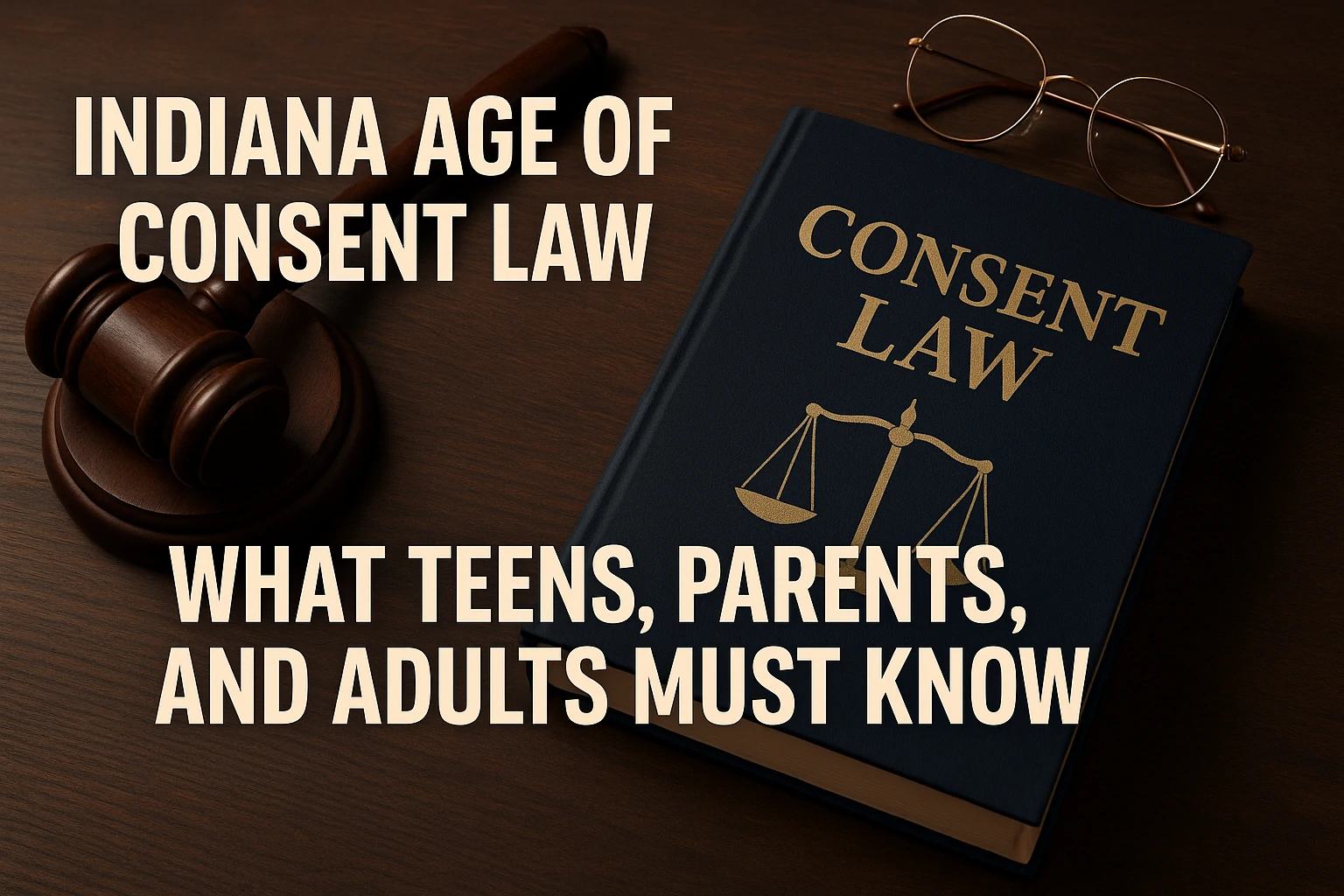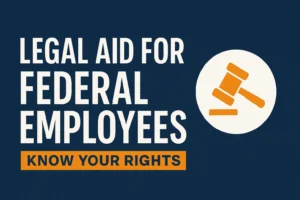Knowing the law about consent keeps people safe. In Indiana, that law is clear. It says who can say yes to sex and who cannot. This rule does not change based on feelings. It depends on age and the facts of the relationship.
This topic matters to teens, parents, teachers, and anyone in a close relationship. Many young people want to know what is allowed. Adults also ask questions. Some think they understand the law, but they do not. One mistake can lead to serious legal trouble.
This article gives real answers. It explains Indiana’s law in plain terms. It shows what is legal, what is not, and how age plays a key role. You will not find legal jargon. You will find simple facts that make sense.
Some people break the law without meaning to. But the court does not accept that as an excuse. That is why it is smart to learn now. This guide walks through the law step by step. You will see how consent works, why the age limit matters, and how to stay on the right side of the law.
The Legal Age of Consent in Indiana
Indiana sets the age of consent at 16. This means a person must be at least 16 to legally agree to sex. Anyone younger cannot give valid consent under the law. Even if they say yes, the law treats it as no.
This rule protects teens who may not understand the full risk. It also protects others from crossing a legal line. The law does not judge feelings. It follows age. The line is clear and firm.
Before age 16, a person cannot make that kind of choice. The law says they are not ready. It is not about blame. It is about safety. The rule keeps adults and older teens from using power over someone too young.
If sex happens with a person under 16, the older person may face charges. Love does not change the rule. Consent does not matter below the legal age. No excuse can undo what the law says.
Some people do not know how strict this law is. They think agreement is enough. It is not. In Indiana, crossing this line can lead to arrest, trial, and prison. That is why knowing the rule is so important. It helps people avoid trouble before it starts.
How Indiana’s Consent Law Compares to Other States
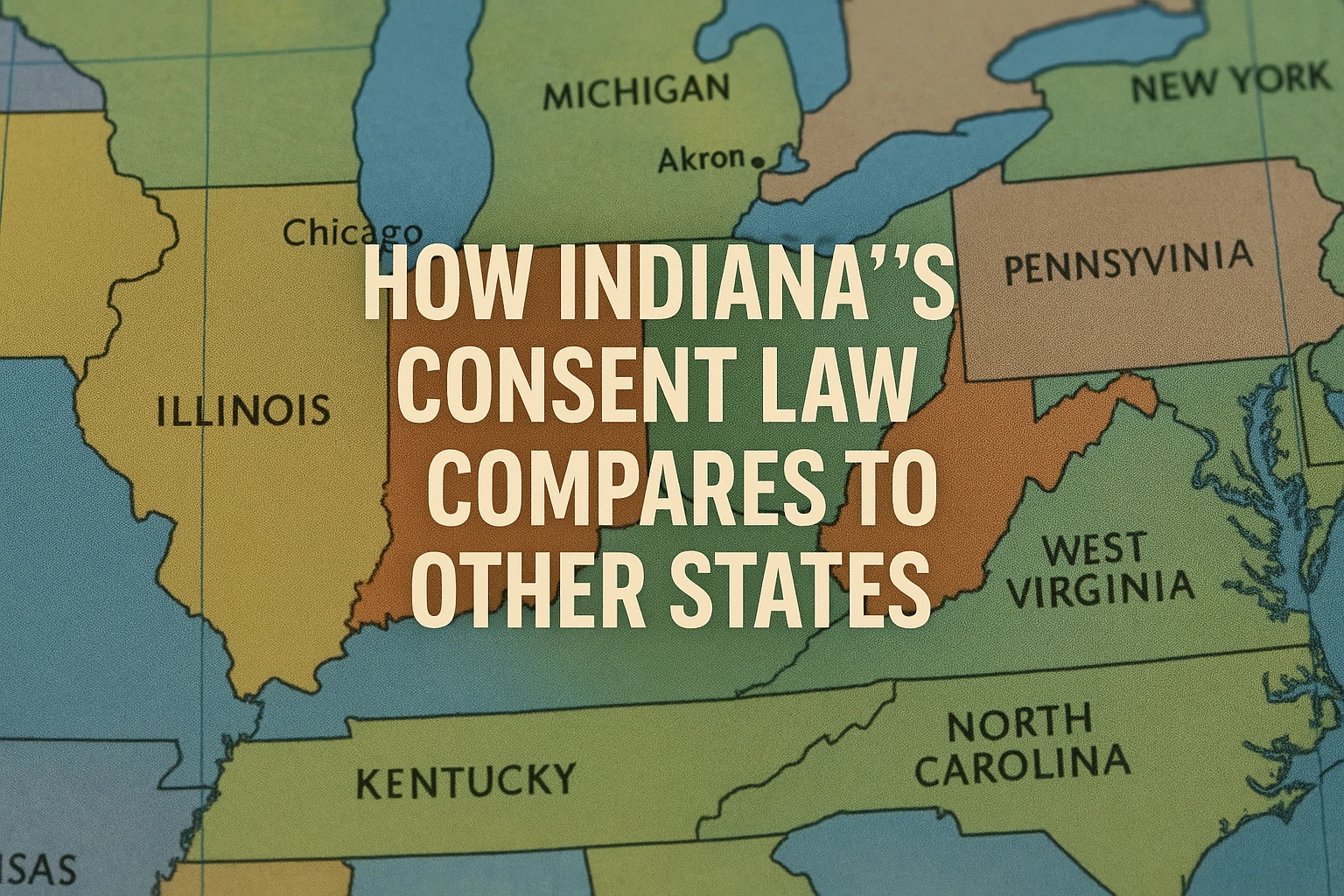
Every U.S. state sets its own rule for age of consent. The law in Indiana allows people aged 16 and above to give consent. This rule may look simple, but it is not the same everywhere.
In Illinois, the legal age of consent is 17. In Michigan and Ohio, it is also 16. Kentucky sets it at 16 too, but has strict rules when the older person is in a position of authority. Each state creates its own line to protect minors. These small changes make a big legal difference across state borders.
This is important for people who move between states or attend college in nearby areas. An action that is legal in Indiana might be illegal somewhere else. Knowing both state laws helps people stay safe. It also protects them from accidental violations.
Indiana’s approach balances teen freedom with safety. It allows consent at 16 but keeps strict limits on adult behavior. The goal is not to punish young love. The goal is to stop abuse and protect those who may not yet understand full consequences.
Understanding these differences also helps parents and teachers guide teens. It builds awareness beyond local laws. When young people travel or move, they should know the rule does not always stay the same. Legal age is not just a number. It defines what the state believes about safety and responsibility.
| State | Age of Consent | Notes |
|---|---|---|
| Indiana | 16 | Equal across all genders |
| Illinois | 17 | One-year older than Indiana |
| Michigan | 16 | Same, with strict enforcement |
| Ohio | 16 | Similar laws with age-gap exceptions |
| Kentucky | 16 | Age + authority restrictions apply |
Each state sets its own rules. What is legal in Indiana may not be legal elsewhere. For example, see if lane splitting is legal in Texas to understand how traffic laws differ by state.
Does Indiana Have Different Consent Laws for LGBTQ+ Teens?
Indiana law does not treat LGBTQ+ relationships differently under age of consent rules. The same age limit applies to all people. Whether the relationship is between a boy and a girl, two boys, or two girls, the law stays the same.
The state says that once a person turns 16, they can agree to sex. The gender or sexual identity of the people involved does not change that. This means same-sex couples have the same rights and limits as others.
However, some people in LGBTQ+ relationships still face pressure or fear. They may feel unsafe talking about their situation. They may also worry about judgment or unfair treatment. But the law does not make one kind of couple more legal than another.
Everyone deserves respect. The law protects people, not based on who they love, but on how old they are and how the relationship works. If both people are old enough and agree, the law supports that choice.
Teens in same-sex relationships should feel safe knowing the law does not work against them. They should also talk to trusted adults or support groups if they feel confused or unsafe. The law stands equal for all.
Can Someone Be Charged Even If They Didn’t Know the Other Person’s Age?
Many people believe they cannot face charges if they did not know someone’s real age. That idea is false. In Indiana, not knowing a person’s age is not a defense. The law expects every adult to be careful before entering a sexual relationship.
If someone has sex with a person under 16, they can face criminal charges even if they thought the person was older. The court will not accept ignorance as an excuse. It does not matter if the younger person lied about age or looked mature. The law always protects minors first.
This rule may seem harsh, but it keeps young people safe. It reminds adults to think before acting. It also teaches responsibility in relationships. Checking someone’s age is not rude or strange. It is smart and lawful.
Many legal cases in Indiana have shown this rule in action. Some people believed the other person was 18 or in college, yet the law still punished them. The court focuses on the age itself, not what one person believed.
If there is any doubt, it is better to walk away. Asking questions or waiting to confirm someone’s age can prevent years of trouble. The law demands care and attention. A single mistake can turn into a lifetime of regret.
What Happens If a Minor Lies About Their Age in Indiana?
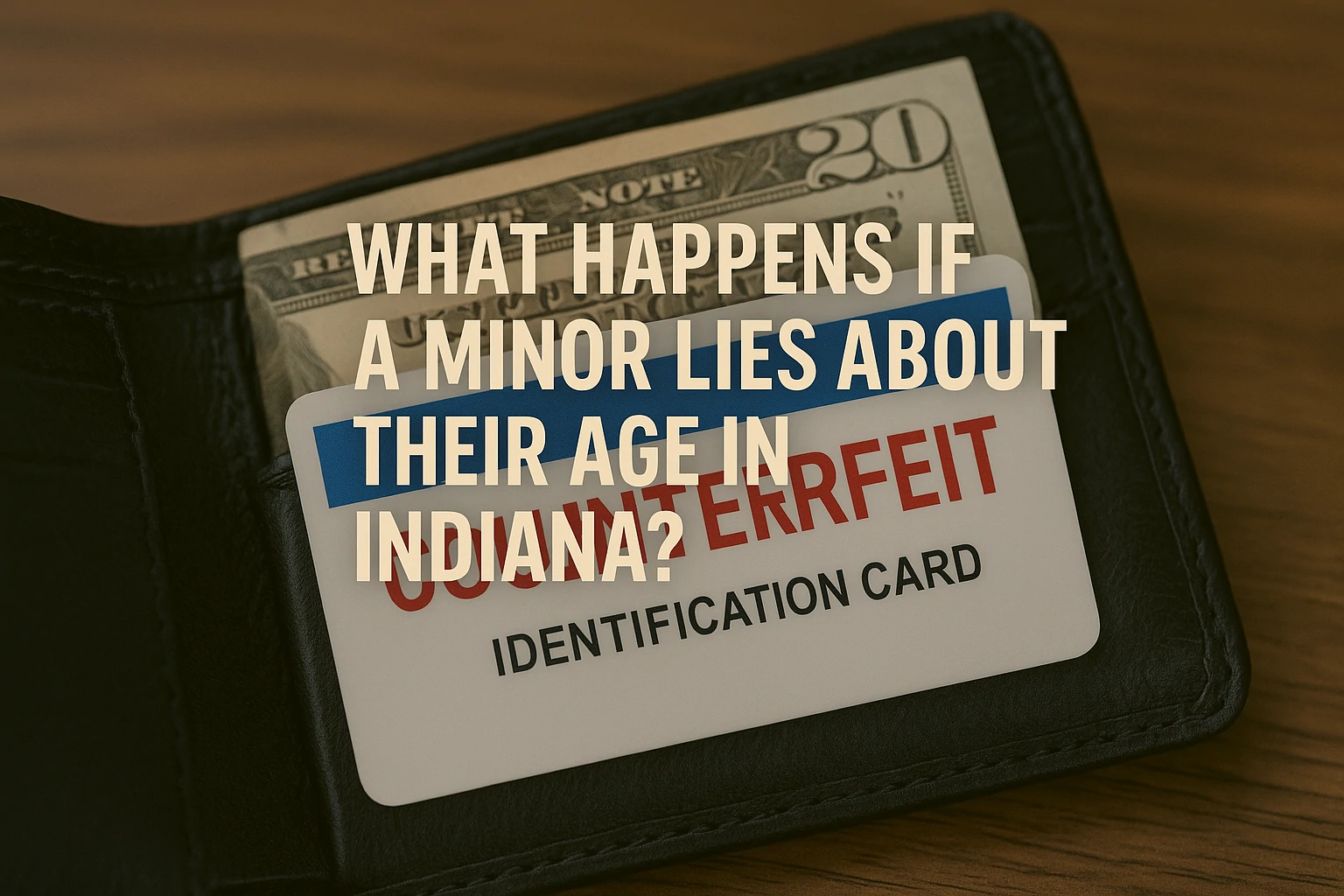
Some minors lie about their age. They may want to impress someone older. They may feel more grown up than they really are. But in Indiana, this lie does not protect the older person from legal trouble.
Even if a minor lies and says they are 16 or older, the law still treats them as underage. The older person may still face charges. The court looks at the real age, not what was said or believed.
This rule often surprises people. They think they did nothing wrong. They may have seen an ID, a social profile, or heard the person say they were legal. None of that matters in court if the person was truly under 16.
The law puts full responsibility on the older person. It does not ask who started the relationship. It does not ask who lied. It only checks one fact: the age of the younger person. If that person is under 16, the law applies fully.
This is why it is so important to ask questions, be cautious, and never assume. One false word can lead to arrest, court, and a criminal record. The risk is never worth it. Always confirm before crossing that line.
What Role Does Alcohol or Drugs Play in Consent Cases?
Consent must be clear and honest. If someone is drunk or high, they may not be able to give real consent. Indiana law treats this as a serious issue. Even if a person is over 16, being under the influence can make them legally unable to agree.
If one person uses drugs or drinks too much, their words or actions may not count as consent. This is true even if they say yes. Their state of mind matters. The law says a person must understand the choice before they make it. If they do not, then the agreement is not valid.
Many teens and young adults do not know this rule. They think being drunk makes things easier or more fun. But in court, alcohol makes things harder. It can turn a private act into a crime. It can also turn one mistake into years of legal trouble.
This rule also protects people from harm. Some use drugs or alcohol to pressure others. That is not just wrong. It is illegal. The law sees that as abuse. If someone cannot think clearly, they cannot give legal consent. The other person may face charges, even if both parties are of age.
The best way to avoid problems is to stay sober and clear-minded in any relationship. That shows respect, care, and legal safety. One poor decision after drinking can change a person’s life forever.
How Long Does a Sex Offender Stay on the Registry in Indiana?
The sex offender registry in Indiana is not a short-term punishment. It can last for many years, or even for life. The length depends on the type of crime and the age of the victim.
Some people stay on the list for 10 years. Others must stay on it for life. The court decides this during sentencing. Once on the list, the person must follow strict rules. They may need to check in with law officers. They must report where they live and work. They cannot live near schools or parks.
Being on the list changes everything. It affects housing, jobs, and even daily life. Many people do not want to live near someone on the registry. Employers may refuse to hire them. Some schools may not accept their children.
Even if the crime happened when they were young, the record stays. A 19-year-old who made a mistake with a 15-year-old could end up listed for life. The law does not always forgive age or intent.
There is a legal process to ask for removal after years of good behavior, but it is not easy. The court checks each case closely. Few are removed early.
The best way to avoid this is never to cross the legal line. Once added to the registry, a person may carry that label forever. It follows them across cities, jobs, and even state lines.
Can a Juvenile Be Put on the Sex Offender Registry in Indiana?
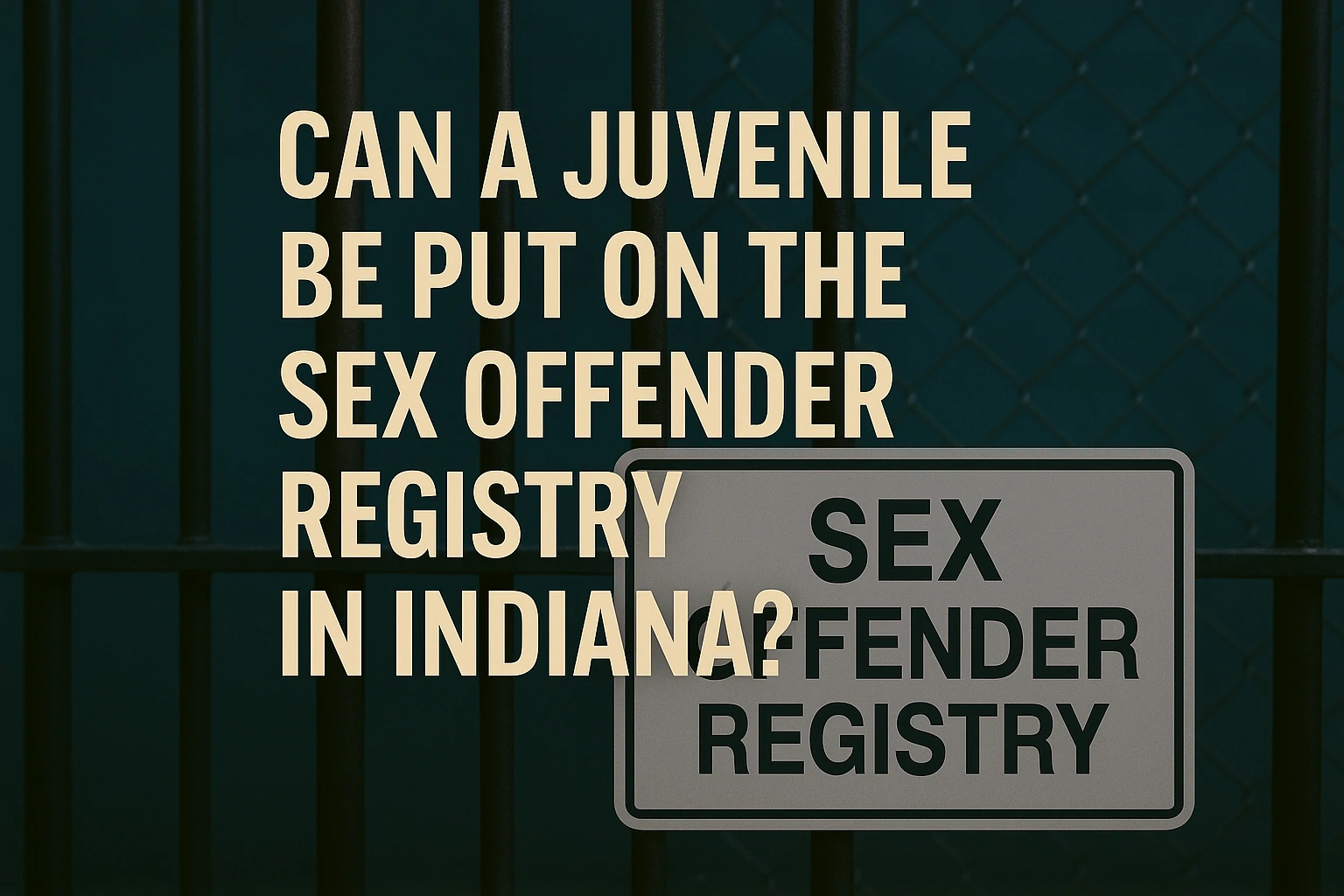
A juvenile can be placed on the sex offender registry in Indiana. The court makes this decision based on the facts of the case. Judges review the age of both people, what took place, and if any force or harm occurred.
Many teens do not understand how serious these laws are. They may act on impulse or believe their relationship is harmless. But when the law defines their actions as sexual misconduct, they can face life-changing charges.
The court does not automatically add a teen to the registry. Judges consider the teen’s age, background, and level of risk to others. If the teen is under 18, the record may stay private. Still, in some cases, the court can make it public and list the name on the state registry.
Once listed, the teen must follow strict rules like an adult offender. This can last for years and affect school, jobs, and even housing. The label can follow a person into adult life, creating long-term challenges.
Some teens may later ask the court to remove their name after showing responsibility and good behavior. But this is not easy. The process is slow, and approval is never certain. That is why understanding the law before mistakes happen is so important.
Parents, teachers, and community leaders should talk to teens about this issue. The goal of the law is not to punish youth unfairly but to protect others and prevent harm. Awareness and education are the best tools to keep teens safe and informed.
What Are the Rights of the Victim Under Indiana Consent Law?
In Indiana, the law gives strong rights to victims of sexual misconduct. These rights protect their safety, privacy, and voice in the legal process. The law takes every report seriously and supports those who come forward.
A victim can ask for a protection order. This keeps the accused person away from them at home, school, or work. The court can approve this even before a full trial. It helps stop fear and harm.
Victims also have the right to stay informed. They can receive updates about the case, charges, court dates, and verdicts. They do not need to speak in court if they feel unsafe. They can choose to write a statement instead.
The law allows victims to ask for privacy. Their name may be kept out of public records. This helps protect them from judgment or unwanted attention. The court can also limit media access in some cases.
Support groups, hotlines, and legal services are available across Indiana. Many schools and hospitals also offer trained staff to help victims. These services give emotional care, shelter, and legal advice.
The law protects people of all ages, genders, and backgrounds. It does not blame victims. It listens and offers a path to justice. Anyone who feels hurt or unsure should speak to someone they trust. No one needs to face harm alone.
Can Past Consent Affect Future Charges in Indiana?
Some people believe that if consent happened once, it means future actions are also allowed. That idea is wrong. In Indiana, past consent does not cover new situations. Each act must have its own clear agreement.
The law treats every event on its own. If someone agreed yesterday, that does not mean they agree today. If they said yes once, they still have the right to say no next time. The law always checks the moment something happened.
This rule protects people from pressure. It reminds others to ask each time and not assume. Relationships do not remove the need for consent. Marriage, dating, or time together does not erase this rule.
If someone moves forward without asking, they may face charges, even if the relationship felt safe before. The court will ask if both people gave full agreement at that time.
It is also true for teens. If they once agreed before reaching the legal age, it still counts as illegal. A birthday does not change what happened in the past. The law looks at the age and action when it happened.
Respect grows from asking. Trust grows from listening. The law supports both. Do not rely on the past. Always check the present.
What to Do If You Witness a Violation of Consent Law
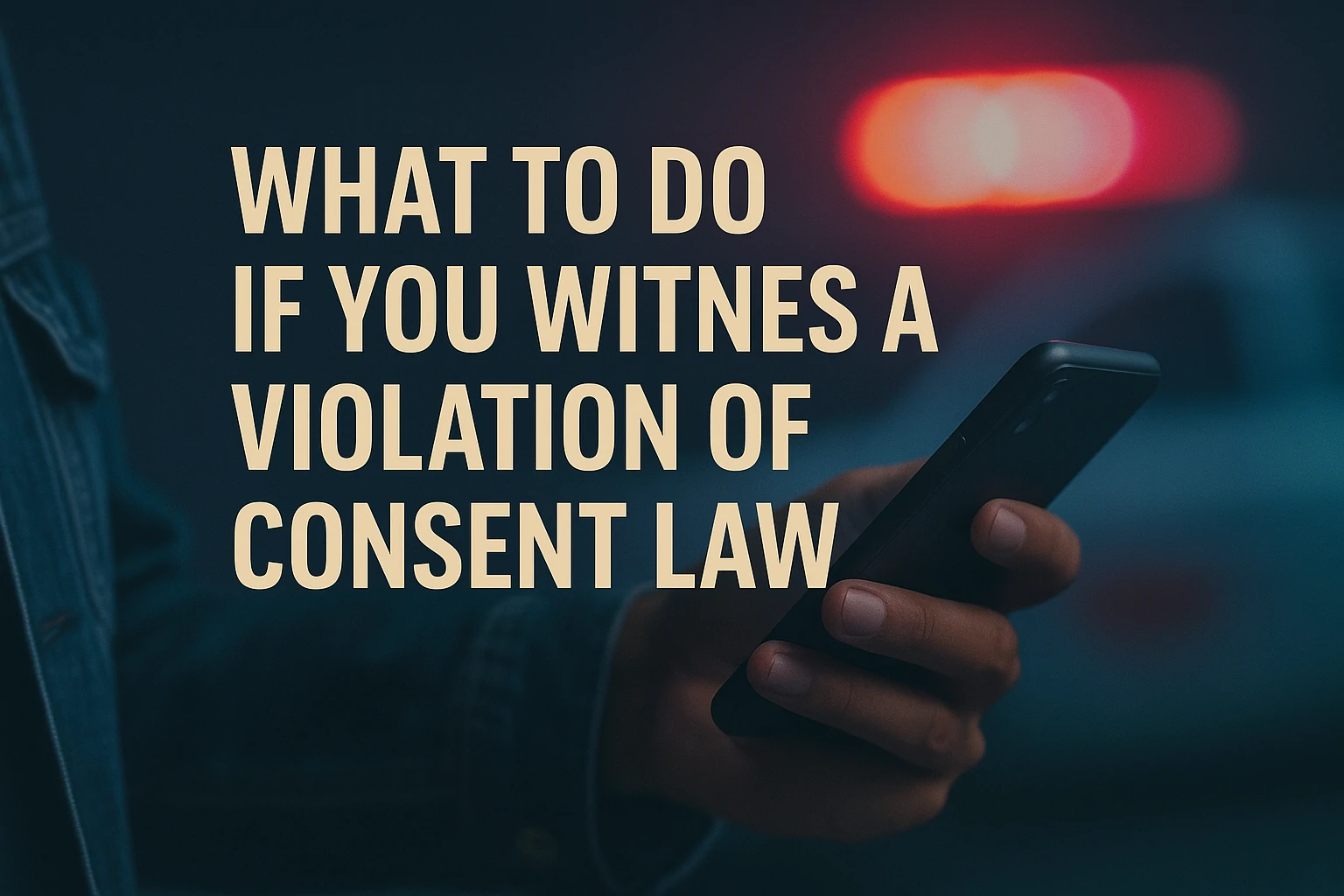
An accusation can change your life. Even if you believe you did nothing wrong, the legal process may still move forward. If this happens, you must stay calm and act with care.
Do not argue or try to explain to police on your own. Say that you want a lawyer. Then stay quiet. Anything you say can be used in court. Even honest words can cause problems later.
Find a lawyer who understands Indiana’s consent laws. A good lawyer will protect your rights and guide you through each step. They will explain the charges, the risks, and what you should do next.
Do not contact the person who made the claim. The court may see that as a threat. Do not delete messages, photos, or posts. That may look like you are hiding something. Let your lawyer handle all evidence.
Tell the full truth to your legal team. Hiding facts can hurt your case. Your lawyer can only help you if they know everything. Even a small lie may cause big problems.
Being accused does not always mean you are guilty. The law gives you the right to defend yourself. With the right help, you can face the process and tell your side.
What Kind of Proof Is Used in Age of Consent Cases?
In Indiana, age of consent cases depend on facts. The court looks at real proof, not just words. Both sides can bring evidence. This helps the judge or jury decide what truly happened.
One of the first things the court checks is the age of both people. Birth records, school files, or legal IDs may be used to prove age. If one person is under 16, consent does not count.
Messages between the two people may be shown in court. This includes texts, emails, or social media chats. These messages can show what was said, what was asked, and what was agreed.
Photos, videos, or phone records may also be used. Even deleted messages can be recovered in some cases. If someone tried to erase evidence, the court may see that as a sign of guilt.
The court also listens to what each person says. Witnesses may be called. This can include friends, family, or teachers. Their words may support or challenge the story.
Medical reports can also play a role. They may show if any harm took place. They can also confirm details about the act itself.
The truth matters most. The court needs clear facts to make a fair choice. That is why every person should be careful in all actions and words, online and offline.
How Do Social Media and Dating Apps Play a Role in Consent Cases?
Social media and dating apps often lead people into risky situations. Teens and adults use these platforms to chat, share photos, and meet new people. Many users lie about their age or post content that looks older than they really are. This creates confusion and danger.
In Indiana, meeting someone through an app does not change the law. If the person is under 16, the same legal limits apply. Even if the app says they are over 18, the court still checks their real age. Using an app does not give legal protection if a crime happens.
Messages from these platforms often become key proof in court. They can show what was said, when it happened, and who started it. Courts look at every word and image. One mistake online can lead to serious charges. The safest choice is to know the law and be careful before trusting anyone online.
Is There a Statute of Limitations on Consent Law Violations in Indiana?
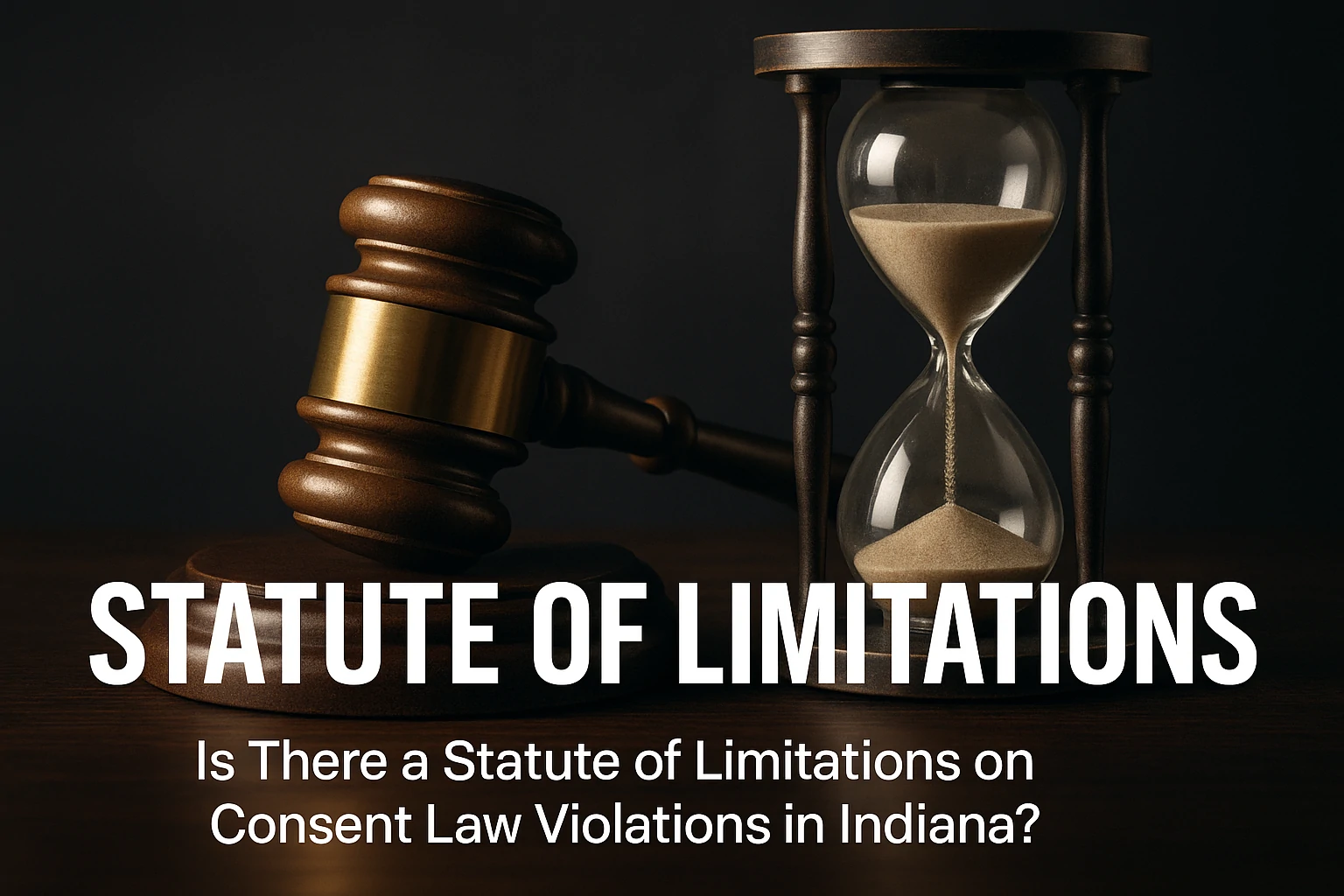
Yes, Indiana has a statute of limitations for consent law cases. This means the state has a time limit to bring charges after a crime happens. The length of that time depends on the type of crime and the age of the victim.
If the victim is under 18, the time limit is longer. Some serious crimes, like child molestation or rape, may have no time limit at all. This gives victims a chance to speak up later, even if many years have passed. The court allows this because many young people stay silent out of fear or confusion.
In less serious cases, the time limit may be five years or less. After that, the court may no longer take action. But each case is different. That is why legal advice is important. If someone thinks a crime happened, or if they face old charges, they should talk to a lawyer right away.
Can a Consent Charge Be Removed from Someone’s Record in Indiana?
In some cases, a person can ask the court to clear a consent-related charge. This is called expungement. It helps people move forward after meeting strict rules. But not everyone qualifies.
Indiana allows expungement for some low-level crimes. The person must wait a set time, avoid new trouble, and follow all court orders. If the court agrees, the charge may be sealed or removed from public records. This can make it easier to find work, housing, or attend school.
Some crimes do not qualify. Serious charges like rape or child molestation usually stay on the record. Sex offender status may also stay in place. That is why it is safer to learn the law early and avoid trouble before it starts.
What Resources Are Available for Teens to Learn About Consent and Relationships?
Teens in Indiana can find many resources to learn about consent, safety, and relationships. Some schools offer health classes that teach respect, personal space, and how to say no. These lessons help young people build confidence and set clear boundaries.
Trusted groups also offer support. Places like Planned Parenthood, Youth First, and the Indiana Youth Group provide free guides, counseling, and events. These programs teach how to spot abuse, respect others, and make smart choices. They also help teens ask questions in a safe space without fear or shame.
Parents, teachers, and doctors can also help. Teens should feel safe talking to adults they trust. No one has to learn alone. Asking for help shows strength, not weakness. Learning about consent early protects teens for life.
What the Law Means for Teens
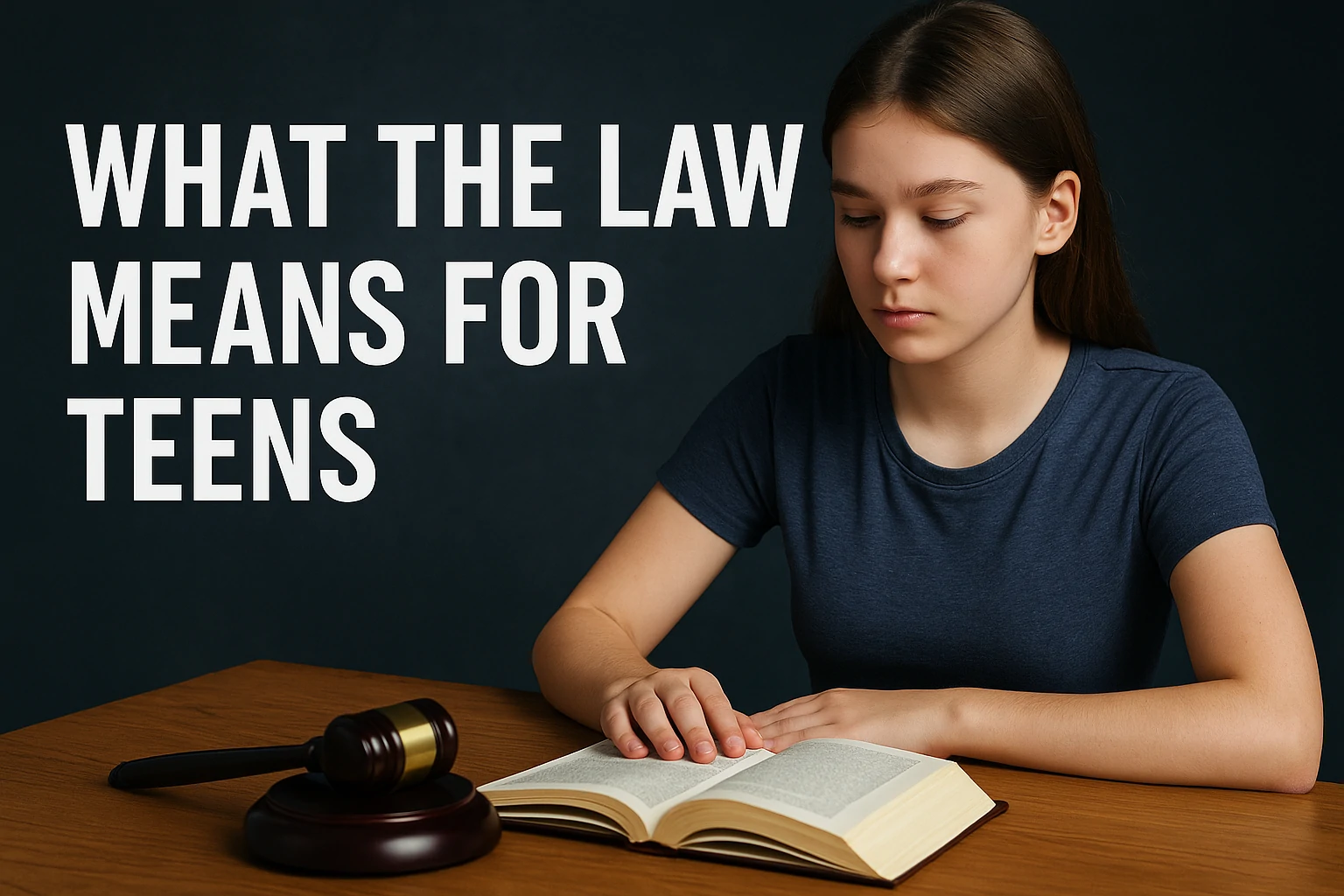
Teens often explore relationships as they grow older. Some may feel ready to enter into physical or romantic experiences. But the law does not base consent on emotion. It bases it on age. Even if a teen feels mature, the law may say otherwise. That protects them and also teaches responsibility.
If two people are both 16 or older, the law does not usually interfere. The relationship must be voluntary, safe, and mutual. However, if one person is under 16, it changes everything. Even one year can make a difference.
That is why teens must take this law seriously. A decision made in the moment can lead to long-term problems. These include police action, court cases, or public shame. Even private photos shared online can cause legal damage. The line is clear. Respecting it shows maturity and wisdom.
What Happens If Someone Breaks This Law
When someone breaks the age of consent law in Indiana, the legal system responds. The charge depends on the ages of both people. It also depends on how old the older person is and what happened between them. The most common charge is sexual misconduct with a minor. In more serious cases, the charge may become child molestation or rape.
Once a person faces such charges, they may be arrested. They will likely go to court. If found guilty, they may go to prison. They may also need to register as a sex offender. That means they will live under strict rules for years or even for life. They may not live near schools. They may lose their job. Friends and family may turn away from them.
The legal system does not show mercy just because someone did not know the law. That is why this topic is not just about relationships. It is about freedom, future, and peace of mind. Knowing and respecting the law keeps people out of harm’s way.
Close Age Exceptions in Indiana
Indiana law does make one exception. It applies to young people who are close in age. This is sometimes called the Romeo and Juliet law. It allows a relationship between someone who is 14 or 15 and another person who is not more than four years older.
In those cases, the law may not charge the older person. The state understands that teens often form real bonds with others near their age. So if a 15-year-old and a 17-year-old are in a relationship, the law may allow it. But once the age gap grows too large, this exception no longer applies.
Also, if the older person is over 21, they cannot use this exception. The law assumes that someone in their 20s should know better than to be with a minor. These cases still go to court. Judges and lawyers look at all details before making a decision.
What Is Considered Sexual Misconduct in Indiana?
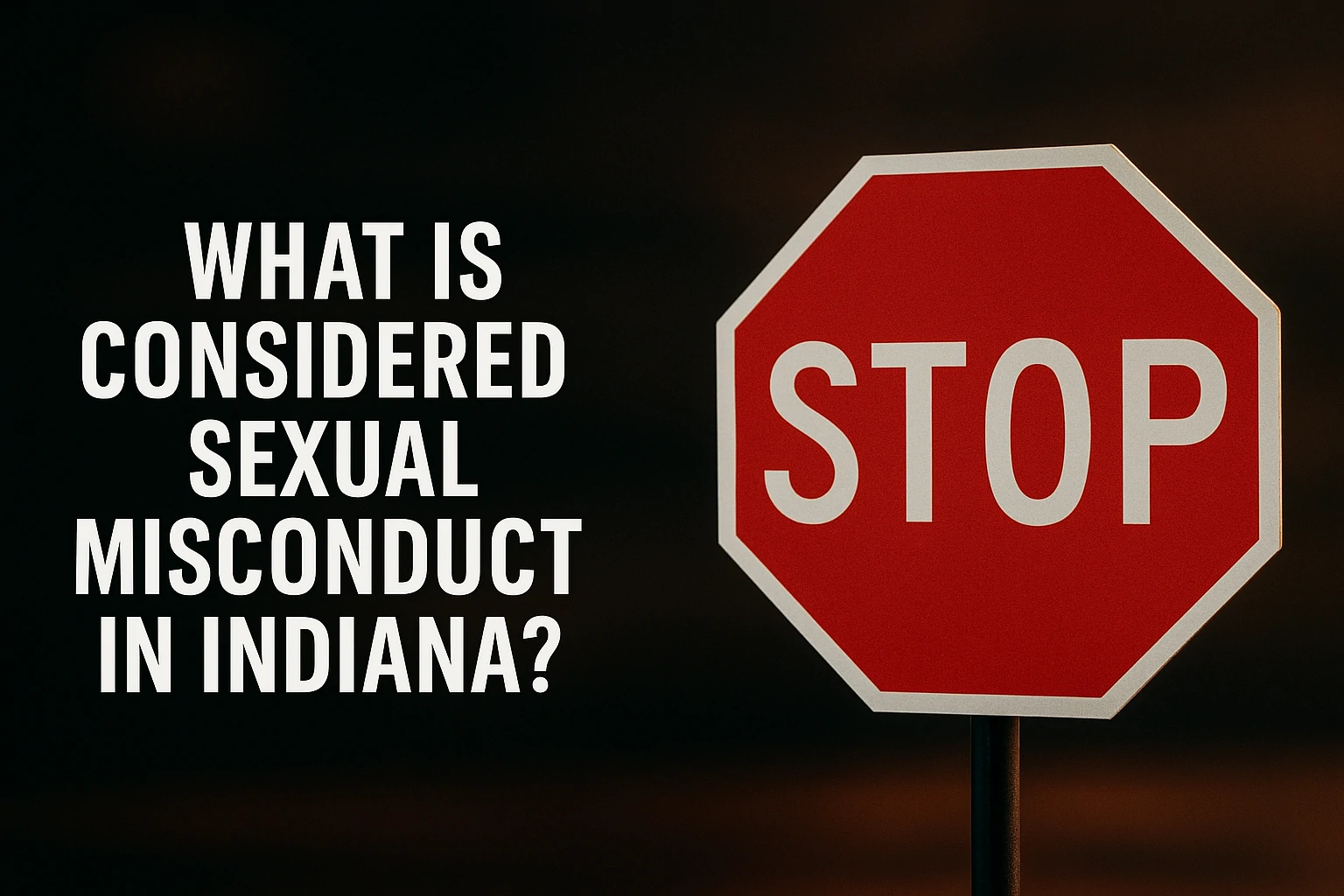
Sexual misconduct in Indiana means sexual contact or acts with a person who is not old enough to give consent. The law protects anyone under 16 from such acts. Even if the person says yes, the law treats it as a crime.
The law defines sexual misconduct in clear terms. It includes sex, oral acts, or any act done with sexual intent. Touching someone under 16 in a sexual way also counts. It does not matter if both people care for each other. The law only looks at age and intent.
In some cases, the charge can become more serious. If the younger person is under 14, the law may call it child molestation. If the act includes threats or force, it may be called rape. Each of these crimes carries different penalties.
The law does not focus on love or emotion. It focuses on protection. The goal is to stop older people from using power, pressure, or tricks to get sex from minors. Knowing this law helps everyone understand where the legal line stands. Crossing it can bring lifelong damage.
Power and Consent
Consent does not only depend on age. It also depends on power. If one person has power over another, consent may not be real. In Indiana, this includes people like teachers, coaches, clergy, or employers.
Even if the younger person is 16 or older, the law may see the relationship as wrong. That is because the power held by the older person may influence the younger person’s choice. When someone holds control or authority, their role becomes a factor in the legal view.
The law protects people in vulnerable positions. Consent should be free from pressure or fear. When someone in power crosses that line, the court may take strong action. This keeps trust in schools, jobs, and homes safe.
How Consent Works in Real Life
Consent must be clear. Both people must agree without force, fear, or trickery. A person must feel safe, calm, and free to say no. If someone feels pressure, their yes does not count. True consent must come from choice.
Silence is not consent. Nodding is not always consent. Past consent does not mean future consent. Each time must be its own agreement. That is what the law expects, and that is what respect demands.
In Indiana, once a person turns 16, they can legally say yes to sex. But even then, every choice must be mutual. Both people must feel ready. They must trust each other. They must understand the risks and care for each other’s safety.
- Saying yes clearly = consent
- Saying nothing = not consent
- Past agreement = not current consent
- Nodding = may not mean consent
- Consent under pressure = not valid
Sexting and Consent
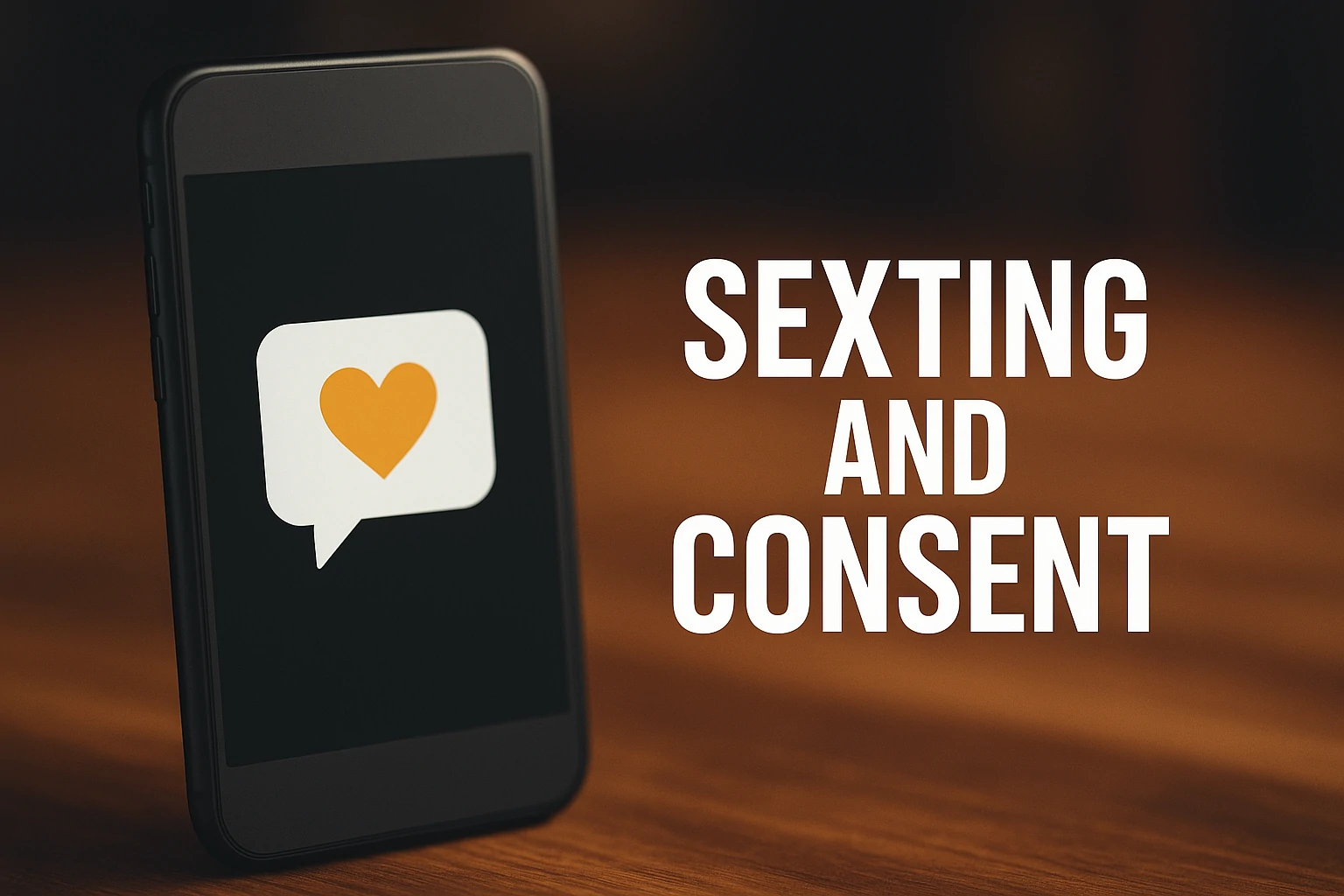
Sexting means sharing sexual messages, images, or videos through phones or apps. In Indiana, sexting laws are very strict, especially when minors are involved. If someone under 18 sends or receives nude images, the law may treat it as child pornography.
Even if both people agree to share the images, the law may still punish them. This applies to minors who send photos of themselves and to anyone who keeps those images. Being charged with a crime like this can destroy a person’s future. It may lead to jail time, a criminal record, and sex offender status.
Teens should know the risks. One picture can cause years of regret. Consent does not make it legal. Once an image exists, it can spread beyond control. Phones and apps cannot protect against the law. The best choice is not to share these kinds of pictures at all.
Can a Teen Be Charged for Sexting Another Teen?
Yes, a teen can face charges for sexting in Indiana. The law does not give minors a free pass. Sharing sexual images of anyone under 18 is illegal. That includes images of yourself.
Even if two teens agree to share pictures, the law may treat it as child pornography. This can lead to arrest, a court case, or even time on the sex offender list. Many teens do not know this. They think it is private. But once an image is sent, it can spread fast.
A teen who saves or shares a nude image of another minor may face serious charges. It does not matter if the other person said it was okay. The court looks at age, not consent, in these cases.
The best way to stay safe is simple. Do not take or send sexual images. Do not ask for them. Do not keep them. A single photo can cause years of trouble. One small act online can ruin your future.
What Parents Should Know
Parents play a key role in guiding teens. They cannot control every choice, but they can teach values, respect, and safety. Parents should talk to their children about consent. They should explain the law in simple terms. They should create a home where questions are welcome.
Teens may not always listen, but they do learn from example. When parents treat others with kindness and respect, their children notice. When parents show love and discipline, their children feel safe.
The law protects teens, but guidance from home shapes how they use that protection. Talking early and often makes a difference. Parents should help their children build strong self-worth and smart judgment.
What Schools and Communities Can Do

Schools also shape how young people understand consent. Rules in school may be stricter than state law. Most schools ban student-teacher relationships. Many schools act fast if they see harmful behavior.
Teachers can offer lessons on respect and choice. They can set good examples. They can protect students who feel unsafe. Communities can host events, create youth programs, and open safe spaces for learning about consent.
The law is one part of the picture. Education and community support make it complete. When schools and families work together, teens grow strong and safe.
Laws can vary just like they do in other areas of life. For example, see if lane splitting is legal in Florida to understand how state laws differ across topics.
What to Do If You Think the Law Was Broken
If someone believes that a consent law was broken, they should report it. This may mean calling the police, talking to a school counselor, or telling a trusted adult. The system must know the facts to act.
Victims may feel scared, guilty, or confused. But they did nothing wrong. The law is there to help them. Reporting a crime does not fix everything, but it starts the process of justice.
If someone is accused, they should not try to hide or run. They should get legal help and tell the truth. Courts will listen to both sides. But the best way to avoid trouble is to know the law and live within it.
If someone also faces job loss after a legal issue or needs help with employment law, they can learn more about legal aid for fired federal employees in Virginia.
Conclusion
In Indiana, the legal age of consent is 16. This rule protects young people from harm. It also helps adults avoid costly mistakes. The law sets limits, not to control love, but to keep relationships safe and fair.
Understanding this law helps build a better future. It teaches people to treat each other with care. It also shows that choices have meaning and rules have value.
Consent is not just about saying yes. It is about knowing the law, respecting others, and acting with honesty. In homes, schools, and communities, these values matter.
By learning the law and sharing the truth, we build trust. We protect the young. We guide the confused. And we create a world where every person knows their rights, their limits, and their worth.
Coommon Questions
Q. What is the age of consent in Indiana?
Indiana law sets the age of consent at 16. This means that anyone younger than 16 cannot legally agree to sexual activity, no matter the situation. The law protects minors and clearly defines when consent is valid.
Q. Can someone face charges if they didn’t know the other person’s real age?
The law does not accept ignorance as a defense. If one person is under the legal age, charges may still apply—even if the other person believed they were older. The court looks at actual age, not what was said or assumed.
Q. Does Indiana law treat LGBTQ+ relationships differently?
All relationships fall under the same legal standard. The age of consent applies equally to everyone, regardless of gender identity or sexual orientation. The law does not change based on who the people are.
Q. What happens if both teens are under 18 and share sexual photos?
Sending or receiving sexual images of minors may lead to criminal charges. Even if both teens agree, Indiana law treats this as child pornography. The safest option is to avoid sharing any explicit images.
Q. What should someone do if they believe the law was broken?
Reporting the situation to a trusted adult, police, or counselor is the right step. The law protects victims and offers legal support. Telling someone can help start the process of safety and justice.
Disclaimer
This article is for general knowledge only. It does not give legal advice. Always speak to a licensed attorney in Indiana if you have legal concerns or questions about age of consent laws.

